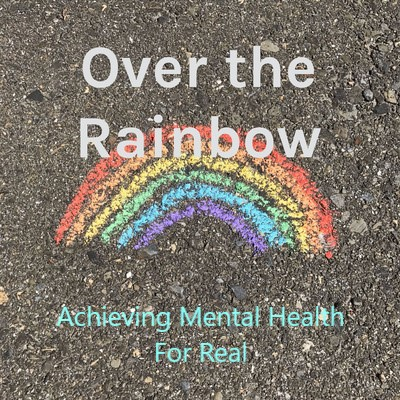Beating Severe Anxiety/Depression Episode 4 Revisited
Learn how to beat severe depression and anxiety through my experience and recovery from a major depression and anxiety attack. How perseverance and patience will always win over the enemy of severe anxiety and depression. Have faith that it is only a temporary state and don't be afraid. You will always win if it strikes and learn how to avoid it's occurrence. I ask that you share this "OTR(Over the Rainbow) - Achieving Mental Health for Real" series so others can understand that they are not going crazy and that it's hard, but you will always win in the end. And it has always been my intention to make people more aware and tell the truth about Mental Illness.
Some procedures discussed in this podcast
Effectiveness
- ECT: Considered one of the most effective treatments for severe depression, especially when rapid relief is needed (e.g., in cases of suicidal ideation or catatonia). Studies suggest 70–80% of patients see significant improvement, with 40–60% achieving remission. It’s also used for bipolar disorder, mania, and schizophrenia in some cases.
- TMS: Effective for treatment-resistant depression, with about 50–60% of patients responding and 30–40% achieving remission. Newer protocols like SAINT (Stanford Accelerated Intelligent Neuromodulation Therapy) may improve outcomes further, sometimes rivaling ECT for certain patients. However, its effects typically build more gradually than ECT’s.
- Ketamine: Ketamine is a dissociative anesthetic used medically for sedation, pain management, and anesthesia, particularly in emergency settings due to its rapid onset and minimal impact on breathing. It’s also employed off-label for treatment-resistant depression and chronic pain, often via low-dose infusions. Recreationally, it’s abused for its hallucinogenic and euphoric effects. Ketamine works by blocking NMDA receptors in the brain, altering glutamate signaling, which contributes to its anesthetic and psychoactive properties.
- Infrared technologies: particularly near-infrared (NIR) light therapy or photobiomodulation (PBM), have shown promise in treating depression. Here’s a concise overview based on available research:
Side Effects
- ECT: Can cause more significant side effects, including short-term memory loss, confusion immediately after treatment, and physical discomfort (e.g., muscle aches or headaches). These effects often lessen over time, but memory issues can be a concern for some patients. The use of anesthesia also carries minor risks.
- TMS: Generally milder side effects, such as scalp discomfort, tingling, or mild headaches during or after sessions, which usually subside. Seizures are a rare risk (less than 0.03%), and there’s no cognitive impairment like with ECT.
- Ketamine: Common side effects include dizziness, nausea, confusion, and elevated blood pressure. Users may experience dissociative symptoms like hallucinations, out-of-body sensations, or distorted perception. Long-term use can lead to bladder damage (ulcerative cystitis), kidney issues, and cognitive impairment. Psychological
Invasiveness and Lifestyle Impact
- ECT: More invasive due to anesthesia and the hospital setting. Patients need someone to drive them home and may need time off work or other activities during recovery, sometimes up to two weeks after a treatment course.
- TMS: Non-invasive and fits easily into daily life. Patients can drive themselves to and from sessions and resume normal activities immediately, making it less disruptive.
For severe depression also see episodes since this episode aired:
- Goodbye Anxiety, Depression, Addiction & PTSD: The Life-Changing Science of Dual-Brain Psychology. March 2025
- New Innovated Treatments - Ketamine, Infrared Therapy (Long Covid) 29 Sep 2023
And many more
For ADHD see episode:
ADHD Revealed – The Real Deal about Medication and the Condition
8 Dec 2022
Or just go through the Real episodes "best of" OCT 2024 through Jan 2025 To catch up
Please help me to help you and others. I am looking forward to continuing and going into more details about how you can battle and beat Mental illness and get what you deserve to be happier. But I need your help to help more people. Thank you and remember you are not alone.
OTR Links:
Mail OvertheRainbowbob@gmail.com
Facebook: https://www.facebook.com/otrachievingmentalhealhfr
Instagram: https://www.instagram.com/over_the_rainbow_achieving
Twitter: https://twitter.com/overtherain1bown
YouTube Channel: https://www.youtube.com/channel/UChEYTddPDUaiZbFliit1r5Q
Official home page: https://bobadleman.wixsite.com/otrmentalhealth
Captivate site: https://otr-achieving-mental.captivate.fm
This podcast uses the following third-party services for analysis:
Podder - https://www.podderapp.com/privacy-policy
Podtrac - https://analytics.podtrac.com/privacy-policy-gdrp


